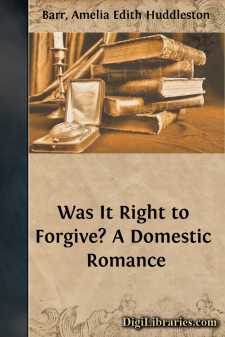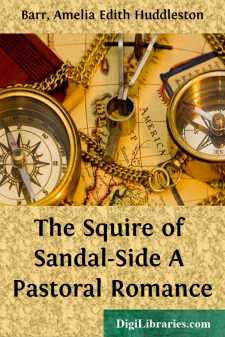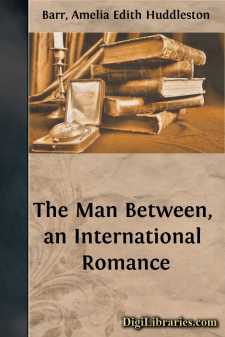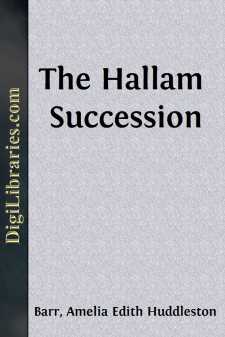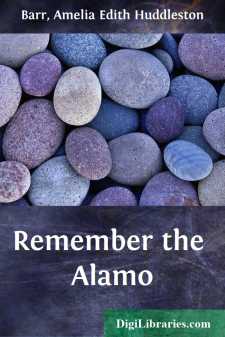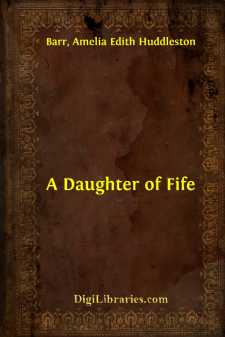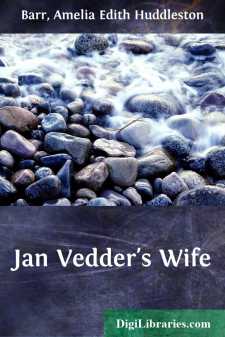Categories
- Antiques & Collectibles 13
- Architecture 36
- Art 48
- Bibles 22
- Biography & Autobiography 813
- Body, Mind & Spirit 142
- Business & Economics 28
- Children's Books 16
- Children's Fiction 13
- Computers 4
- Cooking 94
- Crafts & Hobbies 4
- Drama 346
- Education 46
- Family & Relationships 57
- Fiction 11829
- Games 19
- Gardening 17
- Health & Fitness 34
- History 1377
- House & Home 1
- Humor 147
- Juvenile Fiction 1873
- Juvenile Nonfiction 202
- Language Arts & Disciplines 88
- Law 16
- Literary Collections 686
- Literary Criticism 179
- Mathematics 13
- Medical 41
- Music 40
- Nature 179
- Non-Classifiable 1768
- Performing Arts 7
- Periodicals 1453
- Philosophy 64
- Photography 2
- Poetry 896
- Political Science 203
- Psychology 42
- Reference 154
- Religion 513
- Science 126
- Self-Help 84
- Social Science 81
- Sports & Recreation 34
- Study Aids 3
- Technology & Engineering 59
- Transportation 23
- Travel 463
- True Crime 29
Was It Right to Forgive? A Domestic Romance
Description:
Excerpt
CHAPTER I
Peter Van Hoosen was a result of Dutch Calvinism, and Dutch industry and thrift; also, of a belief in the Day of Judgment. The first motives were inherited tendencies, carefully educated; the last one, a conscious principle, going down to the depths of his nature and sharply dividing whatever was just and right from whatever was false and wrong. People whose religion was merely religiosity thought he took himself too seriously; but if they had a house to build, they wanted this man—who worked in the great Task-master’s eye—to lay its foundation and raise its walls. So that, as a builder in stone, Peter Van Hoosen had a wide local celebrity.
He was a strong, loose-limbed man, with a swarthy face and straight black hair, a man of sturdy beliefs and strong prepossessions, yet not devoid of those good manners which spring naturally from a good heart. Among his fellows he was grave and silent, and his entire personality had something of the coldness and strength of the stony material with which he worked. In his home there was a difference; there his black eyes glowed with affection, and even when a young man, his wife and his little children could lead him. As he grew older, and years and experience sweetened his nature, he became large-hearted and large-minded enough to feel that beyond certain limits there was a possibly lawful freedom.
These hours of expansion were usually those spent with his daughter Adriana. He had two other daughters, and three sons, each of whom had done virtuously in their own way; but in Peter’s estimation, Adriana excelled them all. She was the child after his own heart. In her presence, he felt it good to be hopeful and kind. She led him to talk of everything that was interesting humanity; she asked his opinion on all subjects. She constantly told him how wise he was! how clear-sighted! how far-seeing! She believed he ought to have been at the head of great affairs, and sometimes Peter could not help a little vague regret over the blindness of destiny. In short, Adriana always brought to the front the very best Peter Van Hoosen; she made him enjoy himself; she made him think nobly of himself; and is there any more satisfactory frame of mind? After an hour in Adriana’s company, Peter was always inclined to say:
“Well, well, Yanna! In the Great Day of sifting and sorting, I know that I shall be justified. My well-limed mortar, my walls plumb and strong, my day’s work of faithful service full rendered, will be accepted of my Master. And you too think so, Yanna.”
“I am sure of it, father. It is not the kind of work we do; it is the way in which the work is done. I will risk my word, that you took as much pains with John Finane’s little dairy as with Mr. MacArthur’s fine mansion.”
“I did, Yanna. There is not a poor stone in either,” and when he said the words, Adriana looked straight at him, with eyes full of admiration.
It must be explained, however, that if Adriana Van Hoosen was a remarkable girl for her position, she had had remarkable advantages....


